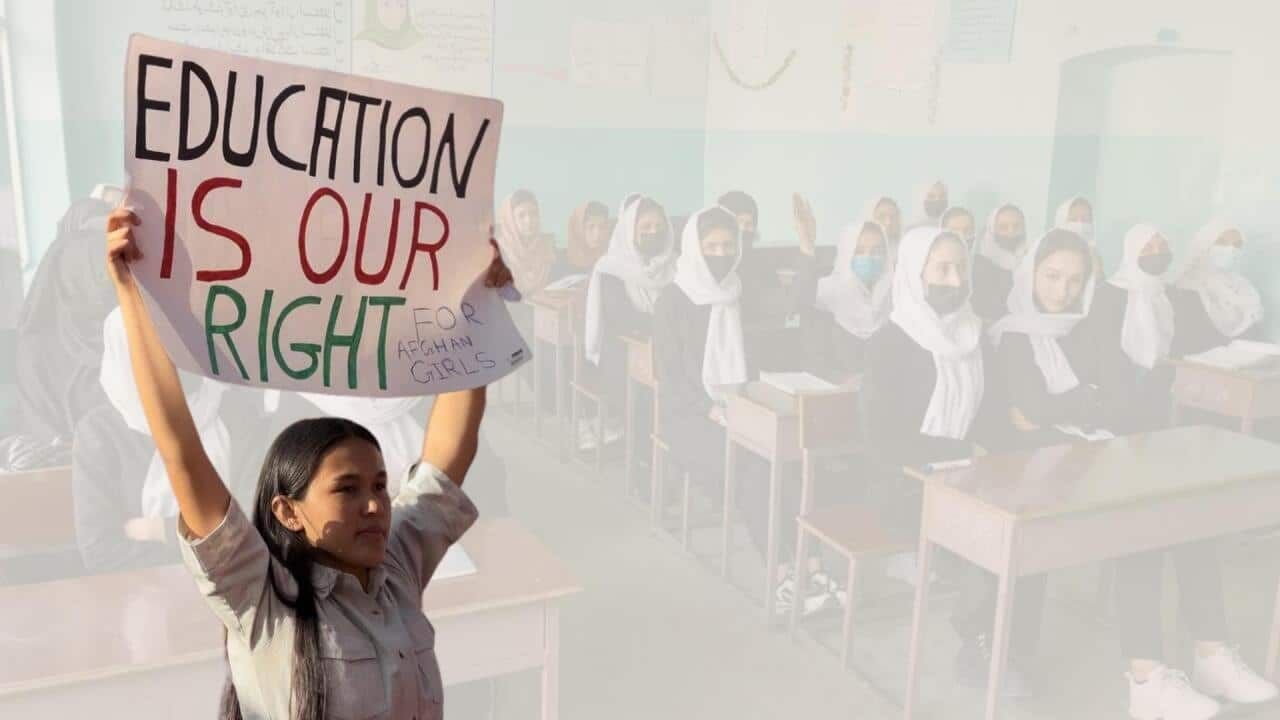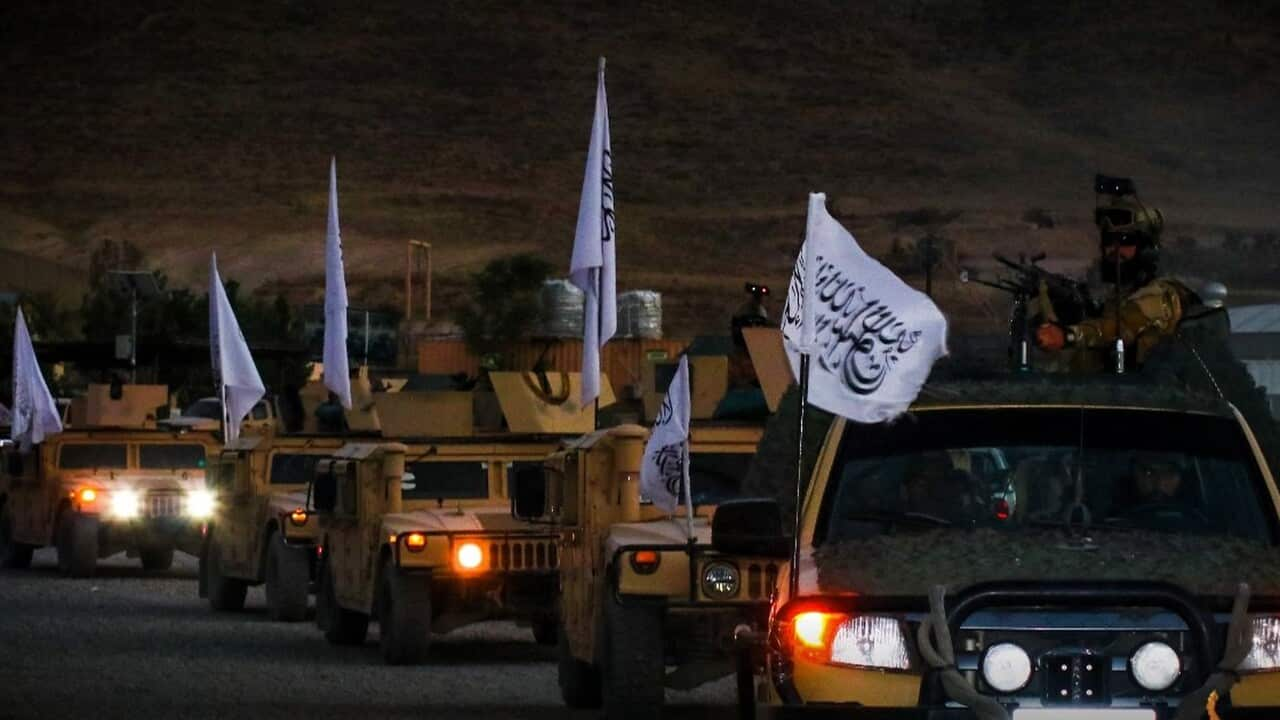Key Points
- Eighteen-year-old rapper Roya uses her music to call for a ‘different Afghanistan’.
- Her traumatic experiences growing up inspired her to write a song about the Taliban.
- ‘In Afghanistan, as a girl, you must always hide your true identity in society,’ she says.
In her hometown of Ghazni in Afghanistan, Roya says she would never have imagined that, as a woman, she would one day write and sing a rap song.
But now, in Australia, the 18-year-old has done just that, recording and uploading her first rap song, , as she dreams of a “different Afghanistan”.
Roya was born in Ghazni, a city in eastern Afghanistan that has been the target of numerous Taliban attacks in the past.
One of the worst attacks took place in 2018, resulting in the deaths of .
Due to the situation, Roya and her family fled the country, eventually arriving in Australia five months ago on humanitarian visas.

'Look into the face of what scares me'
Roya says she studied music at the university level in Australia, against her family's wishes.
“Honestly, if I were in Afghanistan, I would never even think about singing. But, if a woman wants to change, nobody can stop her. If I want to sing and have that power in my heart and soul, nothing stops it. No one is going to give us our rights to us. We should take them," she says.
“I started singing because I wanted to look into the face of what scares me. I’m always afraid to get judged by society and be rejected by my family.”
She describes her father’s reaction as “awful”.
“I expected this. I’m used to this. Instead of being proud, my father was deep down ashamed. This is a bad culture in the family, creating a society,“ she says.

Roya protesting for women's rights in Australia. Credit: Supplied
'Inspired by Tupac'
Her family's qualms haven't stopped her from pursuing her love of music, she explains.
She says her favourite rapper is the late Tupac Shakur, an influential US musician and actor.
Her traumatic experiences in Afghanistan and what has happened in her hometown in past years inspired her to write a rap song about the Taliban, she says.
She tells SBS Persian that she chose rap because she wanted to express her protest and anger.
“I remember every day I read the news about Afghanistan, got angry and wrote the lyrics. In one part of the song, I discuss the Taliban raping women. That’s exactly based on the news I read," she says.
I gathered my words in the shape of music to express my anger and make an argument. What else can we do than spit on them?Roya
“I believe that women in Afghanistan are experiencing the worst lives possible in this century, and that’s because of law and religion.”
Early life in Afghanistan
Roya was born four years after the fall of the Taliban regime in 2001, an era of hope.
In January 2004, one year before Roya was born, the new Constitution of Afghanistan replaced the old, and girls were allowed to return to schools, universities and workplaces.
However, for girls like Roya, there were still roadblocks and these were not just limited to the law or the Taliban.
“Sometimes, it was not about the Taliban. The problem was our fathers and brothers. No matter who is in power, in Afghanistan, as a girl, you must always hide your true identity in society," she says.
“I couldn’t sing or dance in public. I couldn’t even exercise or play sports like volleyball. This was horrible. Happiness has been taken from Afghan girls.”

Roya in her hometown in Afghanistan. Credit: Supplied
Life changed under the Taliban
As Roya grew up, she says the Taliban’s attacks all over Afghanistan escalated.
, 1,145 attacks of different severity were reported on education systems all over Afghanistan.
Only 28 per cent of these attacks were reported in boys’ schools.
“I remember I was in school, and there was a bombing close to my school area. The whole school was shaking. I still remember the sound of the ambulance and crying,” Roya says.
“I have the worst memories in Afghanistan. This is the same for most Afghan people.”
This is not the only traumatic experience Roya says she had in her hometown. She says she believes all of these memories are why she wants to be an artist today.

Roya in school in Afghanistan. Credit: Supplied
'Half of the world is heaven and the other half hell'
Due to circumstances in Afghanistan, Roya and her family left the country for India in 2018.
The same year, on August 10, the Taliban attacked Roya’s hometown Ghazni. This attack lasted for five days resulting in the deaths of more than 300 people. This was one of the deadliest attacks of the Taliban back then.
When I came here, I understood that half of the world could be heaven and half hell. I think Australia is a real heaven for its people. And I think in this country, people and government value human rights. Afghanistan was never safe for me as a child.Roya
While she has been outside her country, she says the "hell" there has worsened.
In August 2021, the Taliban swept back into power in Afghanistan.
“At that time, I believed that international organisations like the United Nations wouldn’t let the Taliban control the country,” she says.
Two years have passed, and the Taliban still controls Afghanistan.
Girls cannot attend school, women must adhere to a strict dress code and cannot travel more than 75km without a mahram, or male companion.
“Sometimes, my mind is not accepting that the Taliban are a group of people that don’t allow millions of women to study. How can we accept this? How can we accept that such a terrorist group controls the lives of millions of people in Afghanistan?” Roya says.

Roya in Melbourne. Credit: Supplied
'My dream is a different Afghanistan'
Today, Afghanistan is entirely different from when Roya and her family left the country in 2018, she says.
The Taliban has absolute power and have banned Afghan women from education, and a couple of days ago, Matiullah Wesa, a campaigner for female education, was arrested.
Here in Australia, Roya says she will continue singing to raise awareness about what's happening in her hometown among foreigners and even Afghan society.
"Here in Australia, I'm enjoying my life. But I want the same for girls and kids in my own country. If I can make a change with music, why shouldn't I?" she says.
"You cannot be an artist without a dream. My dream is a different Afghanistan, to change that hell into heaven, and, even one day, to be able to perform in a concert in my hometown."



